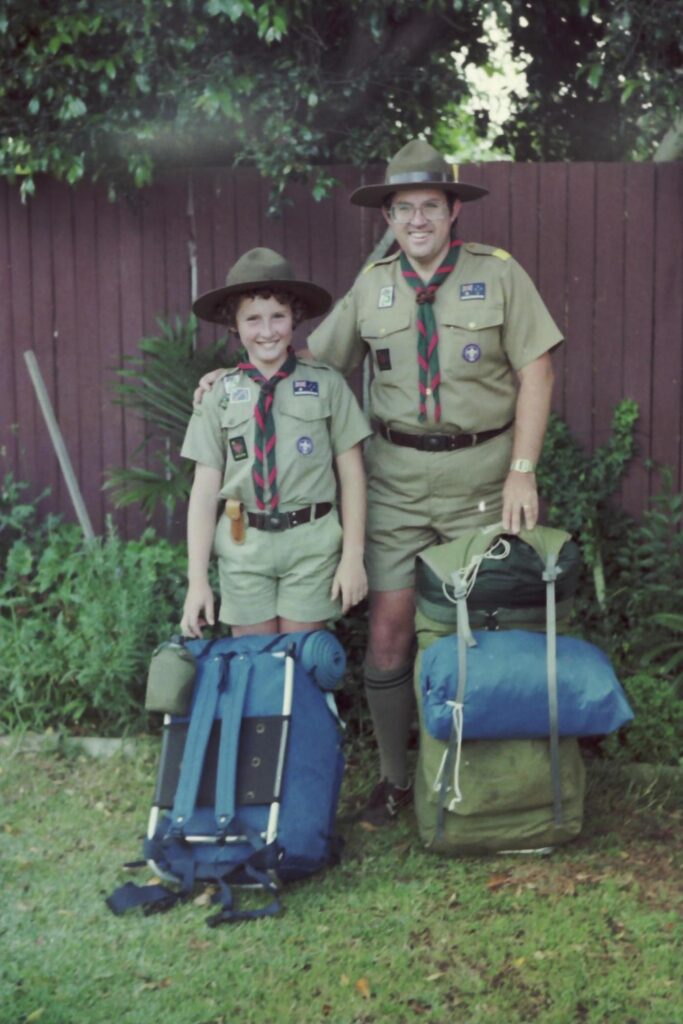I commenced my legal career in February 1965 after leaving high school.
Surprisingly, I found myself in the court room on my first day on the job in what is now the Office of the NSW Director of Public Prosecutions (DPP). I wore a black gown and performed the duties of a court officer. As a teenager in such a judicial environment, I was hooked. From that moment I knew I wanted to be in the courtroom for the rest of my life.
I worked in administrative positions at the DPP during the day and studied law part time at night at the Sydney University Law School. It was a hard slog as I was married with a growing family. Qualifying in 1974 my role in the DPP changed from the administrative to the legal side of prosecuting serious criminal cases in NSW.
My career started to diverge from that of my DPP colleagues when I was seconded to the Office of the NSW Solicitor General in 1979. I remained there as the Professional Assistant to the Solicitor General and the Crown Advocate until the end of my secondment in 1982. My duties included instructing them in significant criminal cases before the High Court of Australia.
Returning to the DPP, my career path drifted even further from mainstream criminal prosecutions to undertaking investigations into organised crime. In November that year I was appointed as the NSW Legal Liaison Officer with the Commonwealth-State Joint Task force on Drug Trafficking (JDTF), a part-time position I held until mid 1985. In that role I was directly involved in a number of significant drug investigations and subsequent prosecutions commenced by the Task Force.
During this period the Royal Commission of Inquiry into Drug Trafficking, headed by Justice Don Stewart, had been established in 1981 by the Commonwealth and the three State governments of NSW, Victoria and Queensland. Its mandate was to inquire into the drug trafficking and other criminal activities of a notorious criminal, Terrence Clark, and his associates, who were running a major international drug importation ring known as the “Mr Asia” Syndicate.
One of the initiatives emerging from the Royal Commission was the creation of a Joint Commonwealth-State Prosecution Team (JPT) in February 1983 to investigate and prosecute Terrance Clark’s two main subordinates – Jimmy Shepherd and “Chinese” Jack Choo. The Prosecution Team comprised only six part-time members, namely two officers from the Australian Federal Police (AFP), two from the NSW Police and two lawyers, one from the Commonwealth and me as the NSW legal representative. In February 1985 I was required to travel at very short notice to the USA to assist the US authorities in the process relating to Shepherd’s extradition back to Australia. This was the first time I had travelled overseas. I didn’t have a passport but overnight arrangements were made for me to travel urgently and by the next day I had my passport, airline tickets and a bag packed. The mission was successful. The JPT had a 100% success rate when, having compiled briefs of evidence and submitting extradition requests, Choo was extradited from Singapore and Sheppard from the USA. Both were subsequently prosecuted in Sydney, based on the Team’s brief of evidence; convictions were recorded and lengthy sentences imposed.
The Royal Commission and the Joint Prosecution Team had also confirmed links between Clark’s “Mr Asia” Syndicate and the Italian Mafia in the Griffith area of NSW. This included the involvement of Robert Trimboli in the 1977 assassination of Donald Bruce Mackay, a high profile anti-drugs crusader. In light of my role in the JPT, in December 1983 I was appointed to assist the Coroner in the Inquest into Mackay’s death.
The early 1980s was a busy period in my legal career. I undertook all of these tasks at the same time, dividing my days between my prosecuting role in the DPP as well as the part-time work with the JDTF, the JPT and the Coronial Inquest. In addition in November 1984, as Principal Legal Officer in the DPP, I was placed in charge of a newly formed Prosecution of Police Unit, which was responsible for investigating and prosecuting police officers allegedly involved in corrupt activities and criminal offences. I was responsible for setting up the unit and establishing its methods of operation.
On the social side, when all this was taking place at work during the 1980s, I was helping my wife raise our three young children. My son joined the local Cub Scouts. Before I knew it I found myself taking up the personally rewarding role of Cub Leader.
